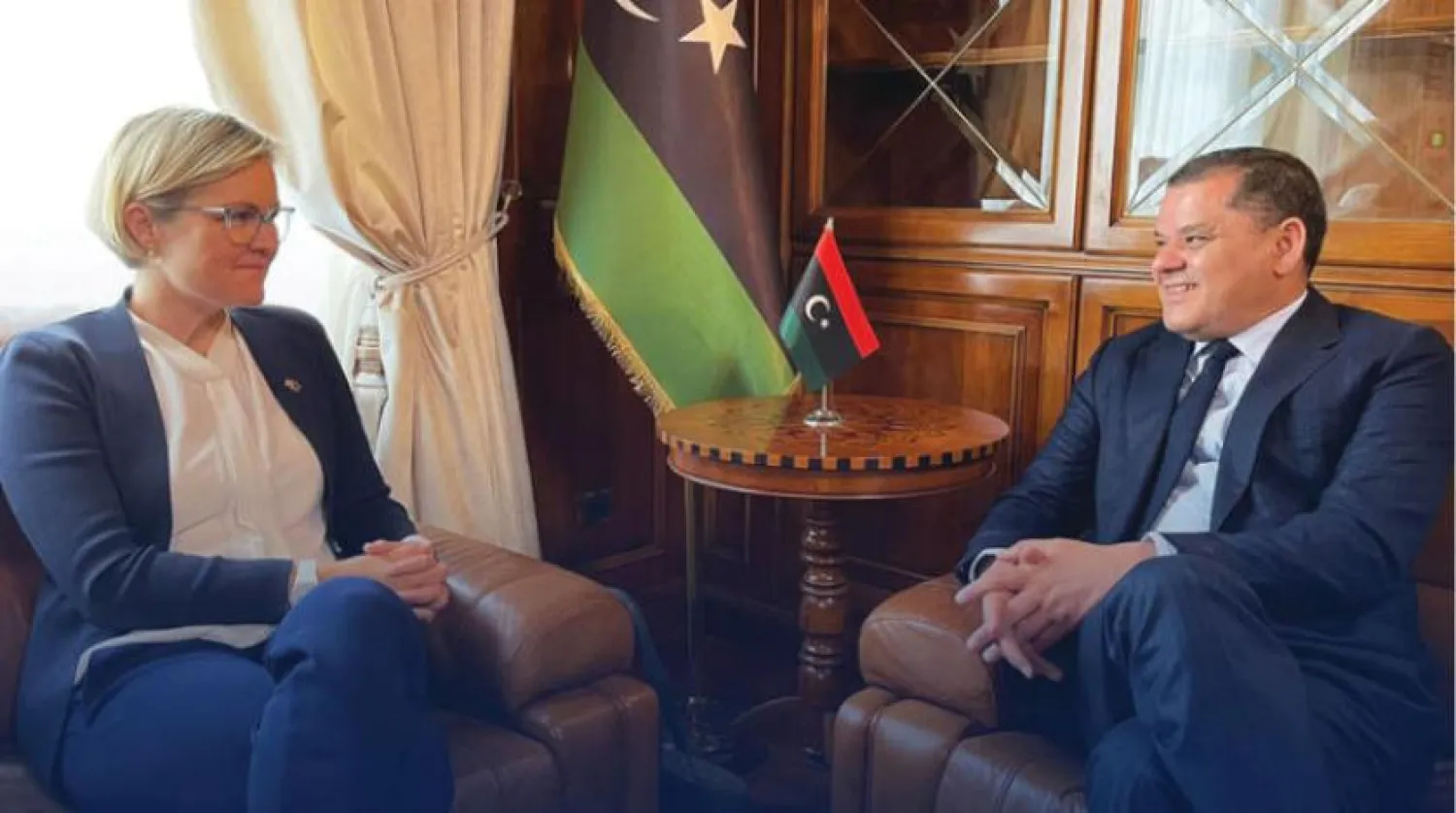Head of Libya’s Presidential Council will intervene to determine the legal framework for the country’s electoral process if the meeting of the leaders of the House of Representatives (HoR) and High Council of State (HoS) in Geneva failed.
The chairman, Mohamed al-Menfi, said during his meeting in Tripoli with tribal leaders that if the meeting fails, the Presidential Council will intervene using its sovereign authority.
Menfi pointed out that the Council continued to push all parties involved in the political process to agree on an electoral legal framework, that includes all and achieves the aspirations of the Libyan people.
A statement by the Council said that Menfi discussed with the representatives the recent developments and several local affairs, namely national reconciliation, and the political challenges facing the country.
Later, Vice President of the Council Musa al-Koni confirmed that the Council will use its powers if Speaker Aguila Saleh and head of the HoS Khaled al-Meshri do not agree on the constitutional basis for the elections.
Koni renewed the Council's pledge to hand over power to a president elected by the people to end the transitional phases according to a constitutional base agreed upon by all political parties.
He stressed the importance of holding parliamentary and presidential elections, reiterating that it will lead to stability.
Meanwhile, the Chairman of the High National Elections Commission (HNEC), Imad al-Sayeh, affirmed the readiness to engage in any electoral process, whether it is a general election or a referendum.
Sayeh said the Commission can implement any electoral law or referendum within only a week or ten days, noting that if all parties agreed on a referendum, it can be completed within 70 days.
Furthermore, the UN Secretary-General's Special Adviser on Libya, Stephanie Williams, announced that Saleh and Meshri will meet in Geneva Tuesday to discuss the constitutional framework for elections.
Speaking in a televised interview, Williams said the members of the constitutional committee managed to settle some disputed issues on the constitutional document, calling on the Libyan parties to refrain from any unilateral move that would undermine confidence in the political track.
She explained that the upcoming talks will focus on transitional measures and the elections, reiterating that an elected and sovereign Libyan government can engage in discussions on the presence of mercenaries and foreign forces in the country.
Saleh lauded the efforts of the HoR and HoS to achieve consensus on the constitutional path by settling the controversial points in the draft constitution, stating that the efforts exerted indicate everyone's keenness to end the political division.
Saleh praised the role of Egypt in support of consensus and achieving stability in Libya, and the UN mission's efforts in facilitating the work of the Constitutional Track Committee and bringing the views of the two committees closer.
On Sunday, outgoing Prime Minister Abdul Hamid Dbeibeh discussed with British Ambassador Caroline Hurndall UK’s role in supporting the elections.
Dbeibeh stressed the need to support the role of the UN Special Advisor in her efforts to support the holding of elections, in respect of the desire of nearly three million Libyans.
The meeting addressed the ongoing oil closure and its impact on the service and economic sector in the country, especially its impact on the supply of gas to electricity production plants.









